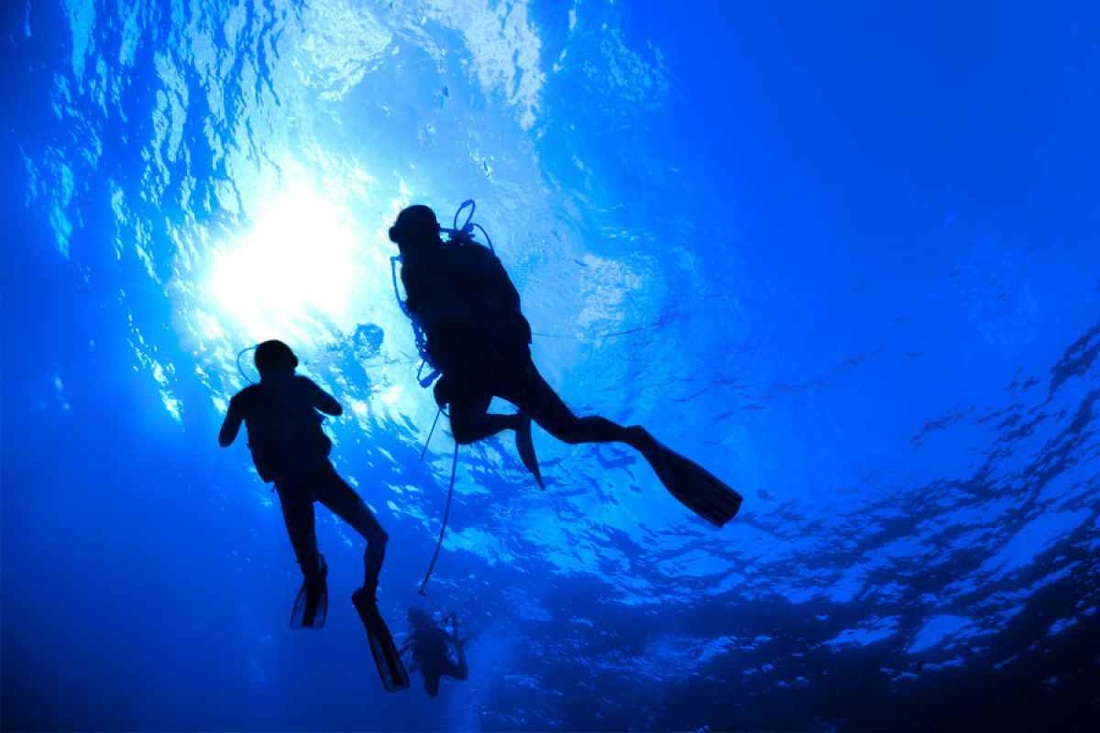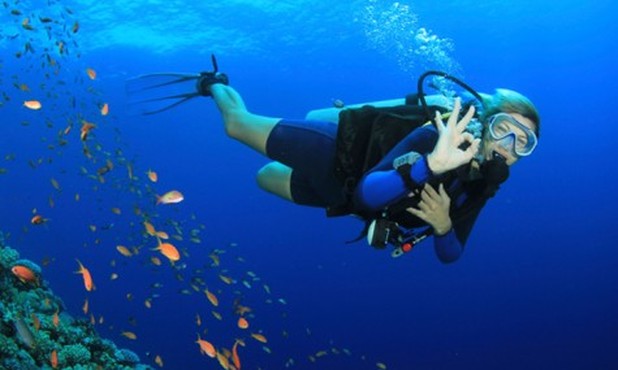Family Travels - Globetrotting with loved ones
|
My knees trembled and my lungs gagged as the scuba instructor shut off my air supply thirty feet below the surface. I immediately shot up off of the cold mucky bottom of the quarry and exhaled slowly as the blurred images of my classmates above grew sharper. But halfway into my ascent, I couldn't exhale anymore--the air in my lungs had run out! Or had it? My instructor, Stephen Deam is well known for exhaling from depths greater than 140 feet- -almost five times the depth of my ascent- -after his air supply runs out. The key he says, is to stay calm and to "keep blowing those bubbles," even if you don't think that there's any air left to exhale. I was on the verge of panic when Deam's words of wisdom struck me. In seconds, I was able to calm down and hum my way safely to the surface. Deam later told me that had I taken one of those ‘quickie' resort certification courses, I wouldn't have received enough training to deal with my emergency situation and I could have been seriously injured or even killed. Am I glad I skipped that trip to Maui! Two- to three-day courses, often offered at tropical resorts, present countless safety risks which can be easily avoided by taking the standard six week scuba program. After participating in a resort expedition in which he was left to dive unattended in sixty feet of water, David Prince believes he has good reason to doubt the safety standards of resort courses. "I was put into several dangerous situations while taking the shortened course," says Prince. "The training that I received at the resort seemed good enough if I wanted to learn how to snorkel, but if you're going to take people down where their lungs can blow up if they do anything stupid, there's obviously something wrong with the shorter classes." According to the Divers Alert Network (DAN), about 100 people are killed while scuba diving each year and about 1,000 more are injured.. Experts contend that a majority of these deaths and injuries result from unsuitable divers who receive inadequate scuba training. The major diving agencies- -the Professional Association of Diving Instructors (PADI) and the National Association of Underwater divers (NAUI)- - offer weekend courses, but specialize in six week certification programs which enable students to become more familiar with complex equipment, and to receive extensive classroom and in-water training. However, more people are opting to take two- to three-day courses, even though they can cost up to $800, over twice the average expense for a standard six week session. The reason for this growing popularity is simple. People just don't have the time for hours of scuba classes, so they are willing to spend a few hundred bucks more on resort courses. Even so, you'd think that the safety risks presented by the resort courses would outweigh all other considerations. Marty Burbank, a twelve-year Navy medical deep sea diver says that most people will sacrifice just about anything to save time, even if it puts their safety on the line.
"Most consumers are unaware of the dangers of [resort courses] and want to get certified as fast as possible," he says. "In Hawaii, I know there are several places that can ‘qualify' you in two days. I say no way can you be really ready and comfortable and safe in the water in only two days." A diver's physical safety isn't all that the two- to three-day courses put into jeopardy. Ashley Cooper, a certified technical, cave, wreck and advanced open water diver, contends that resort certification courses also don't prepare divers psychologically. "Emotions typically restrict or prevent rational thought," Cooper says. "If someone who has not been taught to control their emotions underwater has a problem while diving, and can't solve it because of fear or panic, then that problem can quickly become deadly." Cooper also explains that self control underwater- - like the kind I practiced when my air was shut off- -takes time to learn and can't be fully understood in two- to three-day resort courses. My dad can easily relate to Cooper's views, admitting that he has forgotten just about everything he learned during a weekend certification course two years ago. "The lack of retention of information proved to be a major drawback of the course," he explains, "because I didn't have six weeks to internalize the proper diving methods or to really familiarize myself with both the equipment and the specialized underwater behaviors that make for a truly safe experience." But Burt Wagner, a PADI Master Instructor, defends the two- to three-day programs. "Every industry will have irresponsible people," Wagner explains, "but certification is still as meaningful as it ever was. The shortened courses are simply a result of the dive industry recognizing that, in order to compete with other recreational activities, [the scuba industry] it has to reduce its barriers to entry." Although loosening scuba regulations has attracted more people to the sport and has produced juicy profits, the fact still remains: the six-week certification course saved my life; the two- to three-day course could very well have ended it. So if scuba diving happens be on your list of "things I want to do but will probably never get around to actually doing," think twice before hopping on that plane to Honolulu. Hey, you never know, a six week course just may save your life too. Eve Aronson is a certified PADI and PDIC diver. The above article is also featured in: "Scuba Diving with Melissa Rodriguez."
0 Comments
Leave a Reply. |
|
Want to see your resort or destination featured on Family Travels? Get in touch.
The stories on this website were accurate when published. Please be sure to confirm all rates and details directly with the companies in question, and stay up to date with current events to ensure a safe and successful trip.
|


 RSS Feed
RSS Feed